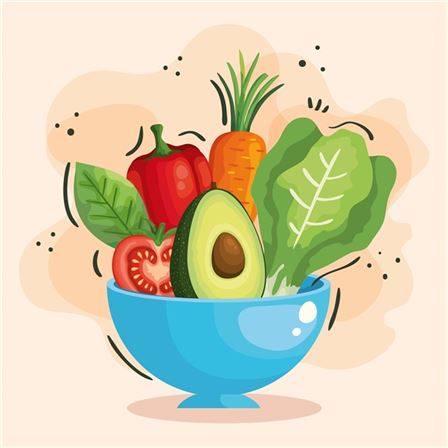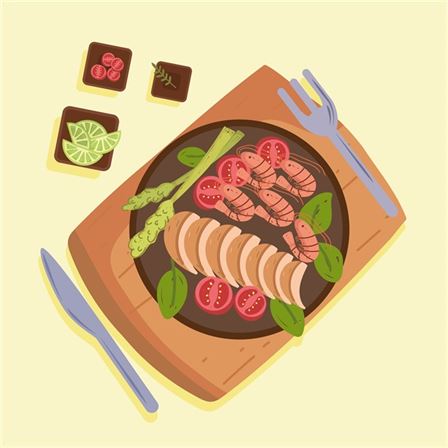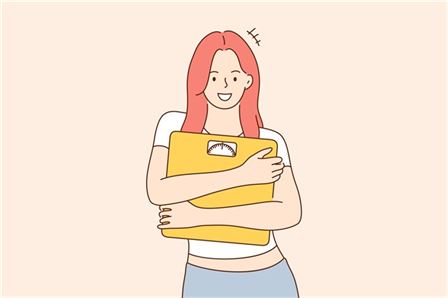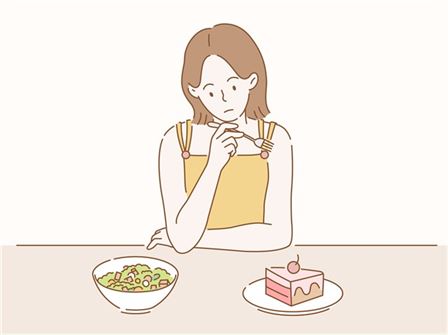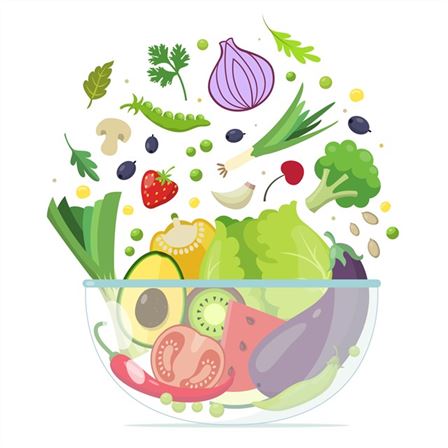Hemorrhoid Treatment: How To Get Rid Of Hemorrhoids Naturally?
Can Hemorrhoids Go Away on Their Own? Hemorrhoids are painful and uncomfortable. They can cause bleeding and even lead to permanent damage to the rectum.
Hemorrhoids can be embarrassing and painful. But there are ways to treat them naturally.
Hemorrhoid creams and ointments contain ingredients like witch hazel, aloe vera, and vitamin C that help reduce inflammation and relieve pain. These products can be used at home or applied by a doctor.
The best way to get rid of hemorrhoids naturally is through dietary changes. The following tips will help you avoid constipation which can lead to painful hemorrhoids.
How to Treat Hemorrhoids at Home – Natural Remedies For Hemorrhoids
If you have been diagnosed with hemorrhoids, several home remedies may be able to relieve some symptoms. You should also try these natural treatments if they do not provide relief from your condition.
External Hemorrhoids
Hemorrhoid symptoms include bleeding or itching around the anus area. External hemorrhoids occur when blood vessels outside the anal canal become enlarged due to inflammation.
These external hemorrhoids usually appear inside the rectum but sometimes protrude outwards. They often bleed during bowel movements because the pressure causes them to swell and rupture. It may take weeks or even months for hemorrhoids to disappear on their own when they are external, and home treatment is not advisable.
Internal Hemorrhoids
Hemorrhoid symptoms are more insidious in internal hemorrhoids because bleeding is internal, not visible. These hemorrhoids typically do not cause pain and result from poor diet and straining during bowel movements or childbirth that cause veins in the anus to enlarge over time.
While most people can treat the discomfort themselves, others should seek medical assistance to avoid further complications.
Internal hemorrhoids develop within the walls of the colon and rectum. Symptoms include swelling, irritation, discomfort, and occasionally bleeding. If internal hemorrhoids cause severe problems, hemorrhoid surgery may be required.
Can Hemorrhoids Go Away Without Treatment?
There’s no cure for piles, but there are ways to manage them. Here are things you need to know about treating this embarrassing and sometimes painful condition.
1. You can’t get rid of hemorrhoids, but you can learn to live with them.
Some people think they can make hemorrhoids go away by avoiding certain foods. However, controlling your diet doesn’t make hemorrhoids disappear. In fact, eating the right foods is beneficial; it may help prevent hemorrhoids in the first place.
2. Not everyone with hemorrhoids has chronic pain or itching.
Most people will have a few weeks of itching or a few days of bleeding with their first episodes of hemorrhoids, and symptoms usually subside within a week or two. However, for some people, the symptoms don’t go away for long periods until they get diagnosed and treated. And some people experience little to no pain while they have their hemorrhoid problems —that’s called internal hemorrhoids.
3. It’s not possible to cure hemorrhoids. They will always be with you.
Because piles don’t go away, it’s important to know when they start and understand how long they will last. It is also important to take care of them properly to prevent them from getting worse before they get better. But even if you control your diet and watch your activity level, you can’t get rid of hemorrhoids —you can only manage them.
How Long Do Hemorrhoids Last if Untreated?
Enlarged hemorrhoids tend to stay around longer than smaller ones. The average person who develops hemorrhoids experiences them for at least six months. Some people report having them for years without ever seeking professional attention.
Symptoms of hemorrhoids vary depending upon where they occur. Internal hemorrhoids often produce less noticeable signs and symptoms than those associated with external hemorrhoids. Bleeding tends to increase after defecation. Painful stools may accompany these conditions.
Can Hemorrhoids Fall Off Themselves?
Severe hemorrhoids can bleed internally and externally. This causes blood clots to form inside the anal canal, leading to serious health issues, including infection and fecal impaction. These types of hemorrhoids require surgical intervention.
Hemorrhoids come in three different varieties: external, internal, and mixed. Larger hemorrhoids are more likely to become inflamed and develop into thrombosis. Thrombosed hemorrhoids do not respond well to treatment and should be removed surgically.
What to Expect When You Get a Blood Clot
Blood clotting occurs naturally during normal bowel movements. A small amount of stool passes through the rectum each time we pass gas. As the stool moves down toward the anus, pressure builds up behind the stool, causing the colon walls to stretch slightly.
If the stretching becomes too great, the muscle fibers begin to tear, and tiny pieces of tissue break off from the wall of the intestine. These bits of torn tissue are known as mucosal tags. Mucosal tags are harmless unless they cause irritation or inflammation.
Blood on Toilet Paper
Blood supply to the lower part of the digestive tract comes primarily from veins located near the skin’s surface. In this area, several large vessels carry oxygenated blood to all parts of the body. Smaller arteries branch out from these larger vessels and provide blood flow to other areas of the body.
The most common type of hemorrhoidal disease is prolapse. Prolapsed hemorrhoids are enlarged veins that protrude outside the anus. The blood flow to the vein is blocked, resulting in swelling and bleeding. If left untreated, the swollen vein could rupture and leak blood into the surrounding tissues.
Prolapsing hemorrhoid is usually caused by straining while passing stool. Straining increases the force needed to push the stool along the intestines. Overstretching weakens the muscles supporting hemorrhoid and allows it to slip downward.
Do Hemorrhoids Go Away After Pooping?
When you have hemorrhoids, you might notice some changes in how you use the bathroom. For example, if you’re constipated, you’ll probably need to strain harder when trying to poop. And sometimes, even though you’ve been pooping regularly, you won’t feel like going at all. That’s because hemorrhoids make it hard to empty your bowels.
Often, people who get hemorrhoids don’t realize what’s happening until something goes wrong. Clotted blood may build up around the base of hemorrhoid, making it painful. It also makes it difficult to move stools through the rectum.
What Do Hemorrhoids Look Like When You Poop Them Out?
You can try pushing back in with your finger after wiping yourself clean. This will help remove any clots that formed inside the anal canal. However, if you find that this doesn’t work, you should see your doctor right away. Darker blood indicates more severe symptoms.
How Can I Treat Myself At Home?
There are lots of things you can do to treat hemorrhoids at home. Here are just a few ideas:
1) Drink Plenty Of Fluids – Keeping hydrated helps flush toxins out
Pressing against hemorrhoid with one hand pushes the blood vessel outward, which relieves the pressure. But pressing against hemorrhoids with two hands causes more damage than good. Pressing against hemorrhoids with both hands stretches the weakened muscle fibers further, weakening them even more.
Most doctors recommend using over-the-counter medications to relieve symptoms associated with hemorrhoids.
Rectal Bleeding
Drops of blood appear in the toilet bowl or on tissue paper used to wipe afterward. Rectal bleeding occurs when internal hemorrhoids bleed internally. Internal hemorrhoids occur within the colon wall itself. They often cause no discomfort, but they can be very irritating. External hemorrhoids lie above the linea alba. These external hemorrhoids tend to itch and hurt. Sometimes, however, they become inflamed and infected.
Blood coagulation disorders, cancer, ulcers, diverticulitis, inflammatory bowel disease, pregnancy, childbirth, trauma, surgery, radiation therapy, certain medicines, and other conditions can increase the risk of developing hemorrhoids.
How Long Does Hemorrhoid Rectal Bleeding Last?
Bleeding from hemorrhoids usually stops spontaneously without treatment. If there is excessive bleeding, consult your physician immediately. The following signs indicate serious problems requiring immediate medical attention:
- Painful defecation – The pain is severe enough to prevent you from defecating.
A large amount of blood is seen in the feces (blood in stool) – If there is a lot of blood in the feces, make sure that your stool is passed with no problem. If there is blood but still no movement of stools, you probably need to go on to an urgent care center for a possible endoscopy.
- Fever – If you have a high fever, you need an examination immediately because this is a sign of internal bleeding.
You cannot see hemorrhoids, but they are still causing pain in both adults and children.
- Severe abdominal cramps – Inflamed hemorrhoids can sometimes cause pain even without defecation.
If these symptoms persist longer than 1 week, contact your health care professionals.
Low-Fiber Diet: Dietary Fiber and its Role in the Reduction of Chronic Diseases
The American diet has been changing rapidly since the 1970s. We now eat less meat, dairy products, eggs, fish, poultry, fruits, vegetables, whole grains, legumes, nuts, seeds, and oils.
Instead, we consume more refined foods like white bread, pasta, cookies, cakes, crackers, soft drinks, fast food, fried foods, processed meats, red meats, sweets, desserts, salty snacks, and sugary beverages. This shift toward fiber intake may contribute to our current high rates of mortality, obesity, diabetes, and other chronic diseases.
A high-fiber diet is protective of the benefits of fiber protects against many diseases and conditions, including heart disease, diabetes, colon cancer, diverticulitis, constipation, kidney stones, gallstones, breast cancer, and prostate cancer.
Dietary fiber includes insoluble fiber and soluble fiber. Soluble fiber dissolves in water to form a gel-like material that slows down the digestion of foods. This results in a gradual absorption of sugar and other nutrients into the bloodstream.
Conclusion
Hemorrhoids are a problem that does not go away without treatment. Sometimes, people do not know they have them and then end up with complications or even infections.
It is best to see your doctor about how you can manage this uncomfortable condition. Use these tips for dealing with the issue and try to avoid aggravating it in the future.
You can help prevent problems with hemorrhoids by taking care of yourself before things start to hurt. Eat lots of fruits and vegetables, drink eight glasses of water every day, exercise daily, and keep stress levels low.
Additional FAQs About Can Hemorrhoids Go Away on Their Own?
Can A Hemorrhoid Be Treated With Ice Packs?
The best way to deal with hemorrhoids is prevention. If you already have hemorrhoids, there are several ways to ease the pain and itching. The first step is to stop putting too much stress on your anus.
Try not to sit down for long periods of time. Also, avoid sitting cross-legged. Sitting in a chair with your feet flat on the floor works well. Avoid straining while having a bowel movement. Use warm water instead of cold water during a bowel movement.
Is Yogurt Good for Hemorrhoids?
Yogurt contains probiotics that help maintain balance in the digestive system. It also provides calcium and vitamin D. These two vitamins play important roles in maintaining bone density and preventing osteoporosis.
Probiotic bacteria found in yogurt promote intestinal regularity and strengthen immunity. They also improve lactose tolerance and decrease gas production. Probiotics also aid in weight loss because they increase metabolism and boost energy levels.
Can Hemorrhoids Kill You? How to Manage Painful Symptoms
Source: (healthline.com)
Hemorrhoidectomy: Purpose, Procedure, Recovery & Risks
Source: (healthline.com)
[wps_products product_id=”1755571453987″ html_template=”product.php”]

